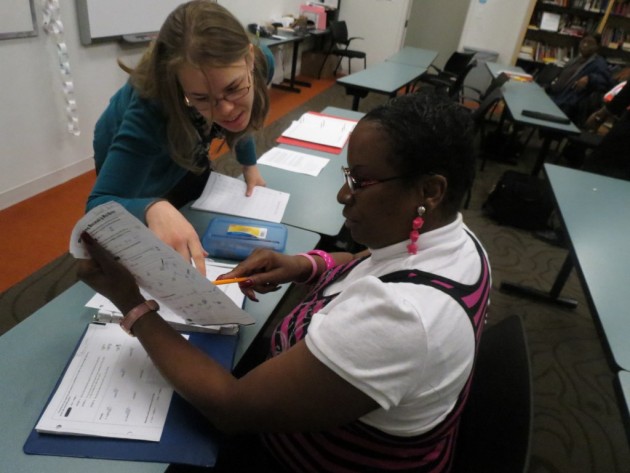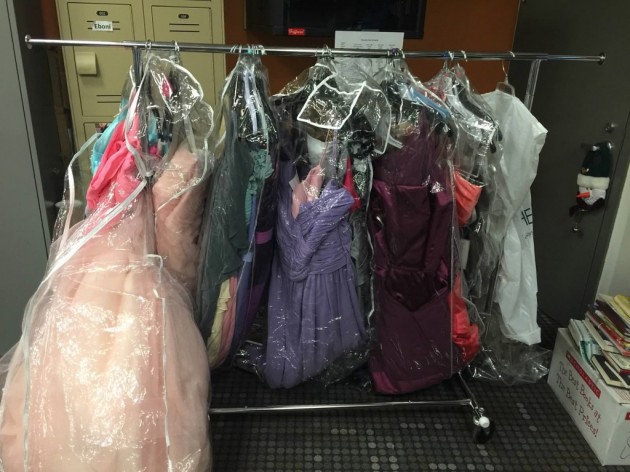‘Hip-Hop vs. America’ Series Examines Effects of Lyrics
The hip-hop industry has been under fire for its role in the black community. From the Don Imus controversy to the overall decline in the sale of hip-hop records, many wonder if America has begun to connect the plight of the black community with the lyrics and images portrayed in the hip-hop genre.
Students, professors and representatives from Black Entertainment Television (BET) discussed these issues during a recent forum and screening of “Hip-Hop vs. America” at Howard University.
The three-part series, produced by BET News, addresses the effects of adult-rated and violent lyrics on the nation and the global community. It is available online at BET.com.
James Peterson, Ph.D., a forum panelist and assistant professor of English at Bucknell University in Lewisburg, Pa., said that he feels that the program provides insight into BET’s new direction.
Anne Williams, corporate communications manager, said that the purpose of the program is to start a series of discussions about hip-hop. The series is not to blame hip-hop, but Williams said that this program will “hopefully” get people thinking about ways of change or at least recognizing that there is a problem.
The night began in the lobby of the John H. Johnson School of Communications, where students, professors and BET representatives gathered for a reception before the screening. Audience expectations varied.
Drew Durand, 19, a public relations major, said that the genre has changed since NWA first came out in the ’80s and wondered how hip-hop artists felt about their involvement in the poorly portrayed images of black people.
“It has changed into a negative genre,” Durand said. “Back then, lyrics were about moving up in the world. Now it’s about black-on-black crime, money and sex.”
Britney Whaley, 21, a political science major, said that she expected the film to “defend all the materialism that artists write about,” but that she was “surprised” after actually watching the short preview.
“I am really amazed,” Whaley said. “It wasn’t what I expected.”
The 45-minute clip featured hip-hop artists Cornell Hayes Jr. (Nelly) and Clifford Harris (T.I), civil rights activist Rev. Al Sharpton, hip-hop mogul Master P, Princeton University professor Cornel West, Ph.D., and video director Benny Boom along with many more who shared their perspective.
The program came at a pivotal point in hip-hop. “It is a show that was conceived in the close of the post-Imus controversy and taped a day after the BET Awards,” said Jeanine Liburd, senior vice president of communications and public affairs at BET. “So we were able to convene a wide range of thinkers on the topic.”
In the film, Diane Weathers, former editor in chief of Essence magazine, expressed her concerns as a single parent about the content shown in music videos.
Nelly, who was criticized by his fellow panel members about his “Tip Drill” video, said that everything shouldn’t be blamed on hip-hop.
“Hip-hop is taking the blame for everything that’s wrong,” Nelly said, “with not just black people but with America period.”
The series also focused on rappers whose lyrics portrayed a lifestyle they never lived; a lifestyle that spoke of living on the streets, drugs and violence.
Nelly said that his lyrics are a testimonial to what he’s been through, while T.I. said that he makes music directed toward the audience he could most likely relate to.
“I’m going to make music that’s going to relate to the people in and around that setting and those scenarios and under those circumstances,” T.I. said. “So if I got to throw some Bs, Ns, Hs, and talk about four-fives, nines and some AKs in order to trick somebody into learning something on another one of my songs on my album, then so be it.”
“It ain’t no way you can listen to a T.I. record and say that’s all you got from it,” he continued.
At the end of the clips, Clint C. Wilson, Ed.D., professor of journalism at Howard and moderator for the night, began the discussion with an audience who had been itching to question panel members Patterson and Selwyn Hinds, the producer.
Hinds said that watching the reactions of the students made the three months of work worthwhile and that this was his first time watching the program with people outside his colleagues.
Audience members had a lot to say. Students commented on the combative nature of the panelists featured in the episode. Hinds said that as the series progressed the panelists views started to become more receptive to change.
“You have all these sectors of people … who have talked about each other and never talked to each other,” said Hinds, former editor in chief of The Source magazine.
In the evolution of the program, Hinds said viewers would begin see the panel recognize the validity of their peers’ points.
BET’s CEO and president, Debra Lee, listened to students ask about the network’s role in the entire issue. Lee said that people must remember that BET is an entertainment network and a business.
“It’s a little bit of everything, and that’s what BET is really all about. We’re an entertainment network,” Lee explained. “The news and public affairs is important to us, but it is also important to us to make people laugh.”
Lee said that the programming team is trying to create a balance in the content and utilize shows like “106 & Park” to get information to the viewers. By the end of the year, BET will have aired 16 new shows including sitcoms, comedy and news.
“It’s not always necessary to have a special program that people may not watch or a news program that turns people off just by the name of it,” she said. “But we’re trying to incorporate more news within the programs we already have.”
By the end of the screening most reactions were the same; they couldn’t wait to watch the entire series. Peterson urged students to tell everyone about the premiere and called it “one of the most important programs to come out of the hip-hop generation.”



